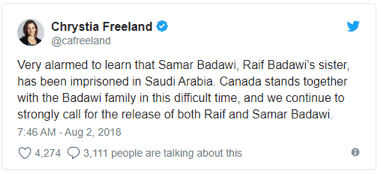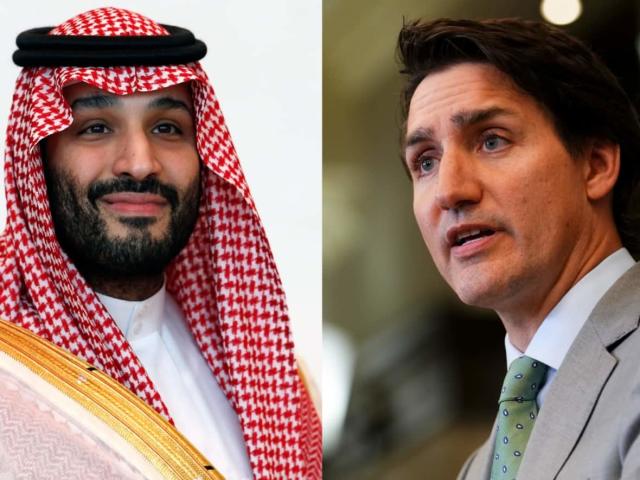In a recent move, Canada and Saudi Arabia have agreed to restore their diplomatic relations after almost 5 years of conflict between the two nations. This decision was taken after discussions took place in November last year between Canadian Prime Minister Justin Trudeau and Saudi Arabia’s Crown Prince Mohammad Bin Salman. Both the leaders met each other on the sidelines of the Asia-Pacific Economic Cooperation (APEC) summit in Bangkok, Thailand.
This decision was taken on the basis of common interests of both the countries as well as their mutual respect for each other. The 2018 spat between Ottawa and Riyadh deteriorated relations between both the countries. It also affected trade between the countries as Riyadh halted trade talks with Ottawa. Not only this, Saudi Arabia also cut off air routes from its national airline, ordered its students out of Canada and decided to freeze all deals between its ministries and Canadian companies.
Canada has already announced that it will appoint Jean-Philippe Linteau as its new ambassador in Riyadh but Saudi Arabia has not yet announced its selection.
Relations before the spat
Before the conflict, Ottawa and Riyadh shared robust economic ties. Saudi Arabia was Canada’s second largest trading partner in the Middle East. Riyadh also purchased C$15 billion worth of Canadian arms in 2014.
Canadian universities were full of students from Saudi Arabia as 16,000 Saudi students were given government scholarships in Canada. Saudi Arabia was also the biggest export market for Ottawa. It imported oil and petrochemicals from Riyadh and exported transportation equipment.
The 2018 spat between Canada and Saudi Arabia

Diplomatic relations soared between both the countries when Canada’s Foreign Affairs Minister Chrystia Freeland issued a statement via Twitter expressing concern over the arrest of Samar Badawi, a human rights activist and sister of Raif Badawi. Canadian government criticized the Kingdom for violating the human rights and also called for the release of human right activists detained in Saudi Arabia.
In response to Canada’s criticism, Saudi Arabia responded by recalling its ambassador and instituting a ban on trade. According to Riyadh, it was unacceptable for Canadian government to judge the Kingdom’s justice system. Dennis Horak, who was the Canadian Ambassador at that time, was also expelled following the conflict.
This was followed by the allegations that Jamal Khashoggi, a journalist has been murdered in Saudi consulate in Istanbul in October 2018. This killing was condemned by Canada and other Western countries.
Economic Effects of the 2018 spat

The Saudi government suspended all trade and investment relations with Canada. It instructed its staff to sell off all the Canadian holding, bonds, equity and shares. It also put a halt to its medical programs in Ottawa. Saudi students who were studying in Canada on various scholarships were told to relocate to another country. Economic sanctions were also imposed as SAGO (Saudi Grains Organization) refused to accept wheat or barley of Canadian origin. This led to adverse economic consequences for both the countries.
But now with the normalization of diplomatic relations between both the countries, it is expected that a new chapter will unfold in Canada-Saudi Arabia relations.













